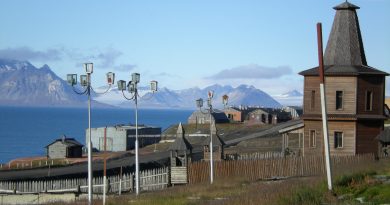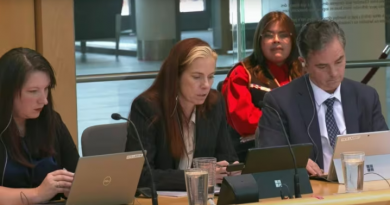Norway’s new government to reshape world’s largest wealth fund

Norway’s incoming centre-right government plans to revamp and possibly break up the country’s $750-billion oil fund, changing how one of the world’s biggest investors spends its money.
The Conservatives and the populist Progress Party, who are likely to share power after Monday’s poll, are considering splitting it into two or more, possibly competing, funds.
They may also allow foreign private equity and infrastructure investment to create a more diversified, and hopefully profitable, portfolio.
These would be big changes for the world’s biggest sovereign wealth fund, which owns over 1 percent of all global shares and invests in some 7,500 foreign companies.
Progress, the most radical among the four possible incoming ruling parties, also wants the government to withhold more of the oil money from the fund, using it to develop domestic infrastructure.
“The current organisation has served the fund well through the start-up period, but it is now time to review whether the fund should stay within the current framework,” Jan Tore Sanner, the Conservatives’ finance spokesman told Reuters.
The current fund can only buy in foreign stocks, bonds and property. It is not allowed to invest at home as successive governments felt the public sector was already large and more spending risked crowding out the private sector, causing inflation and reducing competitiveness.
The centre-right Conservatives, who promised that their win would bring no revolution, are considering dividing the money into two competing funds. They would also allow investments in private equity and infrastructure abroad for the first time.
But the anti-immigrant, anti-tax Progress Party, who will hold the balance of power in government has more radical ideas.
Progress, which will enter government for the first time after toning down its rhetoric, wants to break off three smaller funds from the main one to focus on renewable energy, foreign aid and to let Norwegian finance groups manage some of the cash.
Progress is also open to letting the fund invest in infrastructure projects abroad.
“For a rough estimate, if the fund is worth 4,500 billion crowns ($755 billion), the main fund would be worth 4,000 billion crowns and the remaining 500 billion crowns would be divided between three smaller funds,” Ketil Solvik-Olsen, the Progress Party’s finance spokesman, told Reuters.
LIMITS
The government is allowed to use 4 percent of the value of the fund each year in the budget.
Progress objects to the limit, which was set up to save money for the future and to stop the domestic economy overheating, and wants to finance new domestic infrastructure projects via the oil money in the national budget.
However, big changes are not likely to happen quickly, especially as the incoming government has a big spending leeway even within the current framework.
“This year, spending of petroleum revenues is nearly 30 billion crowns below what the rule allows for, leaving plenty of leeway for a new government,” Citigroup economist Tina Mortensen said.
“To put things into a slightly different perspective, if petroleum spending was to be raised to the 4 percent rule limit next year, this would imply fiscal stimulus equivalent to more than 2 percent of mainland GDP (gross domestic product)”.
And the Conservative-Progress government will need the support of at least one centrist party, as they lack an outright majority and both the Liberals and the Christian Democrats, their potential allies, are known for their moderation.
“They (the new government) may use more of the money they are allowed to use than the sitting government has done, as they have said they want to spend a little more money on infrastructure,” said Kari Due-Andresen, a senior economist at Handelsbanken.
POOR RETURNS
Some critics say that the Norwegian oil fund needs urgent reforms because it has delivered a poor rate of return.
“Unless it changes its current strategy and invests heavily in illiquid assets in faster-growing developing economies, the (fund) will continue to fail to deliver on its target 4 percent return,” said Sony Kapoor who heads the Re-Define think thank.
“The (fund) sharply underperforms many of its peers directly as a result of its refusal to be strategic, buy illiquid assets or invest much in developing countries.”
In the second quarter, the fund returned just 0.1 percent on its investments, as fixed income investments returned -1.4 percent and equities returned 0.9 percent.
But changes will take time. Revamping the oil fund is not likely to be a top priority as the winning parties focused their campaign on reforming the country’s hospitals, schools or roads, topics that are more relevant to their voters.
And Norwegian politics tend to be more consensus-oriented than in other European countries so any major change to the fund would be discussed in parliament, with the Conservatives seeking to involve the opposition in the talks.
“Any changes considered will be based on … political consensus,” said the Conservatives’ Sanner, who emphasised that the party’s thinking was still evolving on the issue of what to do with the fund.
The fund is expected to grow to twice the value of the entire Norwegian economy within the next decade, providing Norway with an unprecedented financial buffer.
Since 2001 governments have stuck to the rule of spending no more than 4 percent of its value into the national budget.
But at the back of the mind of whoever will take over as finance minister is the fact that at some point the oil fund will stop growing, with Norway’s oil and gas fields slowly getting depleted over the next several decades.
-By Gwladys Fouche



